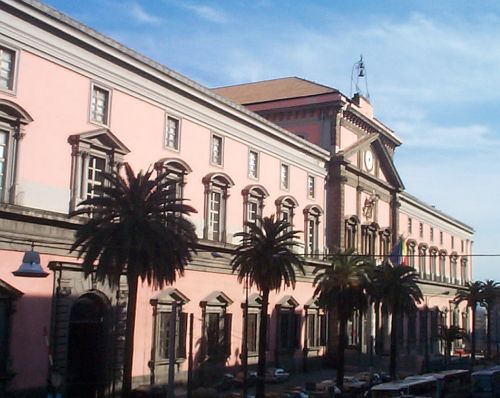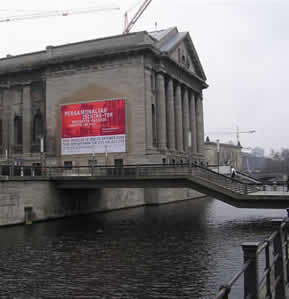Alkalyn!
Museums
Bad Verse
Quiz
Quotes
Quotes1
Food that Bites
Facts -
Perhaps?
Jokes
Darjeeling
Robbie Burns
Scottishy
Things
Thermalmask
Words can be cool
Museums
Naples Museum, Herculaneum and Pompeii are without parallel in their collections of Roman period life. Transportation back in time, to AD79 best describes the tour experience. Our guide to the sites was able to bring alive the people and describe the daily life of the citizen.
The sites were amazing but a visit to the area would not have been complete without a visit to the Archaeological museum of Naples; it houses collections of statues, glass, pottery and tools from the period, also of interest were the dental and surgical instruments used in those days.
The standard of craftsmanship of a pair of tooth pulling pliers was impressive. there was an elegance in the form and precision in the grooves on the grabbing surface that rivals the modern equivalent, In the same room was a glass case containing a a valve for controlling the water flow. That too looked to be of quite modern manufacture.
Inevitably there was a sadness that entire cities had perished but some consolation at the survival of the artefacts showing how they lived, traded, loved, even how they snacked on the fast foods of the day.
The high point of our holiday in Berlin was the Pergamon Museum. Firstly we wanted to see the Ishtar Gate. Through this gate the Babylonians would view the ninety metre high zigurrat Etmananki - or Tower of Babel. One of eight such gates gave access through a high wall built around the zigurrat. The complex was built by Nebuchadrezzar II around 2500 years ago.
The Gate was on a grand scale; it was difficult to imagine the enormity of the entire site. If ever I have wished for for a time machine to see a part of the ancient world it was then - on gazing at the gate - to have stood and looked through at the tower and to view the complex as it had been at its peak. If you visit the museum check out the scale models to get a better idea of what it must have looked like.
Beatiful enamelled tiles cover the walls, many still in good condition. the restoration work, in my opinion allows a good appreciation of what the good citizens of Babylon saw all these years ago.
The museum is named after an ancient Greek city in what is now Turkey. The entire Acropolis of Pergamon was carted back to Berlin and reassembled. It is a shrine to Zeus and is essentially a religious object.
There are other interesting exhibits in the museum, the Greek and Roman marble statues are marvellous but the building was obviously built to house the two massive artefacts and they take centre stage.
<<<O>>>
Among other sights, a visit to the Jewish Museum was also well worth the trek; we missed the turn off but found it eventually. The interesting architecture was the first thing that struck me; modern metallic but avoiding the 'tattiness that metal buildings acquire after some time,
I was in a rather dozy mood and somehow missed the start of the exhibition but when I did, found a very well planned and structured display, almost a tour laid on.
Well laid out, airy and somehow not made oppressive to me with the memory of the Holocaust. That was my verdict, some of the exhibits were moving, but the positivity that was present overrode the negative aspects. and I did learn many new things about the origins and achievements of the European Jews. Those expecting a Holocaust museum would not find one, rather a celebration of a people.
I would have liked to see more on the Yiddish culture of Europe, but perhaps the subject calls for a separate museum.
It was easy to feel empathy for the displaced and persecuted Jews who were forced to suffer near extinction and desperately restricted freedoms, and many other barely describable horrors - Axel 28th February 2007

